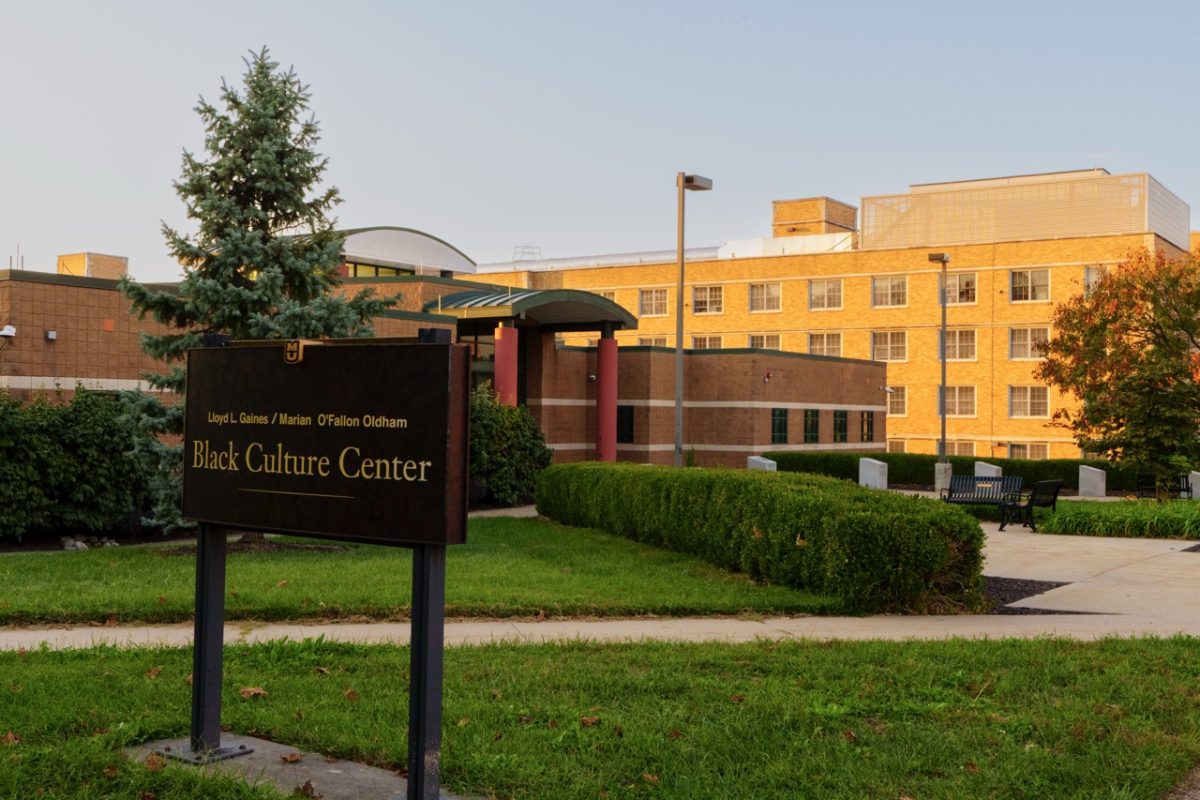The University of Missouri Department of Parking & Transportation’s shift to a demand-based parking permit model could displace the lowest-compensated of MU’s support staff – primarily facility operations and maintenance workers – from their regular parking places. According to public employee organizers with the union LiUNA Local 955, safety risks from longer commutes and inclement weather are likely to increase for over 100 staff members whose shifts are outside recently expanded Tiger Line Shuttle hours and Uber voucher options.
On Aug. 1, MU’s department of Parking & Transportation began enforcing a tiered parking system where permit costs are determined by campus demand for a parking lot or structure. Previously, an employee’s salary and preference for a lot or structure determined their permit fee.
While employees can retain permits close to their workplace from the salary-based permit system, some employees’ monthly permit expenses could triple, increasing from $21 to $63 in tiered parking areas. Moving to the cheaper $10 per month lots in tiers three and four would introduce longer commutes to employees’ schedules, with lots like RP10 that are near the MU Reactor being over a mile away from some campus locations.
“I’m planning on just doing away with the parking and finding a parking place on the street,” said Randy Wallace, an MU custodian of 17 years who works outside of Tiger Line shuttle hours at the Veterinary Medicine Building. “I’m not gonna pay $60, I can’t afford it.”
According to a MU Parking & Transportation spring 2024 presentation, if the prior salary-based model for parking continued, faculty and staff monthly rates would have needed to increase by $15 to support routine and deferred maintenance costs for parking areas. The department’s finances are independent from other university funds, leaving the department reliant on parking permit revenue for its operations.
“Given increasing costs of labor and materials, we sought to create a model with long-term viability to maintain a safe and reliable parking infrastructure,” university deputy spokesperson Travis Zimpfer said.
MU Parking & Transportation pursued a demand-based parking system in consideration of feedback from students, faculty and staff who labeled the old system inflexible, according to Zimpfer. The department consulted the MU Faculty Council on University Policy, Missouri Students Association, MU Health Care leadership team and other units on campus representing students, faculty, staff and administrators.
In tiered parking lots and structures, MU Parking & Transportation is selling more permits than spaces available, according to Zimpfer. After surveying campus demand for parking and differing employee and student schedules, the department said that every permit holder will not simultaneously need a parking space, minimizing scenarios in which students or employees cannot find a place to park.
The department sells permits on a first come, first served basis for MU employees and students, and faculty and staff receive first priority in the permit application process. But some employees still have concerns over spot availability as students, faculty and staff compete for parking in the most affordable areas.
“We fear for our job,” Wallace said. “Because if we’re late, it’s an occurrence … If we’re late three times, the fourth time we might not even be coming to work.”
Effective July 1, MU employees now only receive half an occurrence for tardiness if they clock in six minutes past the start of their shift, a new HR policy bargained by LiUNA Local 955. Once an employee receives six or more occurrences within a six-month period, they can face disciplinary action. However, disciplinary action can still occur after three or more instances of unplanned tardiness within an employee’s “pattern of abuse.”
MU’s Tiger Line currently shuttles students, faculty and staff across campus from parking lots and structures. But if the Tiger Line is off-schedule, MU Parking & Transportation will only notify supervisors once a shuttle delay is longer than fifteen minutes, more than double the new six-minute grace period.
While the university expanded its shuttle system to support employees parking further away from campus facilities, many employees work outside of the time frames on which these systems operate. An Uber voucher system was developed to accommodate these employees, providing two rides a day between 8 p.m. and midnight for employees whose permits are for parking in tiers three and four, according to Zimpfer.
Still, over 100 union-eligible employees remain outside of both resources’ time frames, working between 4 a.m. and noon, according to Luke Fennewald, a public employee organizer with LiUNA and former MU custodian. These employees, including custodians, floor technicians and their supervisors, won’t be able to use the shuttle or Uber voucher system.
At an MU Faculty Council on University Policy meeting on Aug. 29, 2024, Sarah Chinniah, MU Vice Chancellor for Business Operations, said the shuttle stops would be designed to address safety concerns for employees commuting alone. At this time, there are no university-sponsored transportation options for those aforementioned employees.
Instead, they will need to rely on University of Missouri Police Department escort services for their safety while walking to work. The MUPD service cannot take people to their destination via a vehicle or golf cart, but one officer can escort multiple people at a time, according to Zimpfer.
As custodial staff move to the edge of campus for lower parking rates, Fennewald said he is worried about their risk of injury increasing. Permitholders can only park in their designated lot or structure, with exceptions during inclement weather conditions if a parking area is full. Many of the 100 employees without access to a shuttle or subsidized Uber are custodians, rendering older employees vulnerable to injuries from walks potentially half a mile or more.
On July 10, LiUNA members voted in favor of approving an offer from the university giving custodians, groundskeepers, and several other MU campus positions a $1-per-hour wage increase, in part to help offset costs from the new parking permit rates.
“We came in there really wanting to … keep up with the cost of living and get people above that $15 mark,” Fennewald said. “If you clock in at 4 a.m. and you can get a job that you don’t have to clock at 4 a.m. anywhere else that pays more, you’re going to go the other way.”
Although public universities are exempt from Missouri’s mandatory minimum wage increase to $15-per-hour by 2026, the union-eligible pay matrix for MU employees effective for 2025 notes the two lowest pay grades are under review. But with most MU custodians entering the new parking system while still in these lower pay grades, frustrations intensified among unionized workers paying a higher proportion of their salary for closer parking.
“[The university] puts us last in everything,” Wallace said. “All the other people get the good spots, and we get what’s left.”
LiUNA also attempted to negotiate a shift differential for MU custodians working the 4 a.m. to noon shift but was unable to obtain it. A shift differential, which provides additional compensation for working unconventional hours, would have also supported those staff now paying a higher proportion of their income for closer parking.
Alongside lacking university-sponsored transportation, these employees also cannot utilize a policy allowing workers to park anywhere outside of enforcement hours, between 6 p.m. and 7 a.m. each day, as their shift ends past 7 a.m.
“I definitely had to change my life around those hours,” said Fennewald, who worked the 4 a.m. shift when he worked at MU. “We came in there really wanting to get custodians on that shift differential because those are some of the lowest-paid people [that work on campus].”
LiUNA invited the University of Missouri system Board of Curators to attend a town hall on June 7 where MU employees voiced their frustrations and concerns around the new parking system. According to Fennewald, the board never sent LiUNA a response before or after the event.
“I don’t think that [the Board of Curators] knows how impoverished a lot of their employees are,” Fennewald said.
At the town hall, employees emphasized the cost burden put on themselves by the new demand-based system and confusion around transportation options for people working outside regular shuttle hours.
“It’s essentially cutting pay, and that could be going towards groceries,” said Kerry Franklin, an MU custodian of over twenty years who spoke at the town hall.
Before the new parking permit system was implemented, LiUNA and university officials attempted to negotiate several concessions to alleviate the system’s financial burden on particular employees, including stipends for affected employees and the aforementioned shift differential.
“I think they’re going to scramble for ways to try to fix it,” Fennewald said. “I don’t think this is going to be the end of it … we’re going to have a lot more discussions around it.”
Edited by Maggie LeBeau | [email protected]
Copy edited by Avery Copeland | [email protected]
Edited by Alex Gribb | [email protected]















